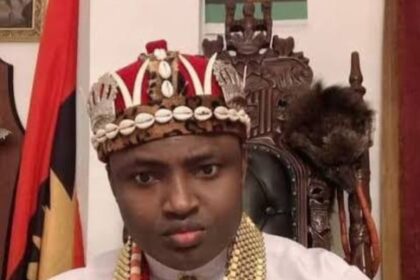The appointment of its Covid special envoy Ngozi Okonjo-Iweala as head of the WTO has deprived the African Union of a key player in the already complex process of funding the rollout of vaccines in Africa, and the regional organisation is now counting heavily on her former employer, the World Bank.
The appointment of Nigeria’s former finance minister Ngozi Okonjo-Iweala as the new director-general of the World Trade Organization (WTO) is likely to complicate the procurement of Covid-19 vaccines, which is already proving to be a thorny issue for the World Bank (WB), African Union and the continent’s governments. A veteran of the WB, where she worked for 25 years (the last four as managing director), Okonjo-Iweala was made one of the UA’s special envoys on coronavirus last April. Given her familiarity with the workings of the Bretton Woods institution, one of her priority tasks had been to secure funding from her previous employer in order to fund the purchase of vaccines. Another string to her bow was her position as chair of the GAVI global health partnership set up by the United Nations, and she has also been actively involved in the WB-funded COVAX initiative to ensure equitable global access to vaccines.
In theory, the funding of the vaccine rollout in Africa was looking relatively straightforward – on 27 January, the WB president David Malpass announced that $12bn was being made available to countries in difficulty, including African states, for the procurement of vaccines and that they should not hesitate to solicit the funds. But in practice, the logistics are turning out to be complicated.
In their hurry to purchase vaccines, governments are all taking different approaches and seeking to purchase from different suppliers. The South African leader Cyril Ramaphosa, who held the AU’s rotating chair until the beginning of this month, has direct experience of the problems that can arise. He initially counted on the COVAX platform, which the UN is using to distribute vaccines under the auspices of the World Health Organization (WHO) and GAVI, of which Ngozi Okonjo-Iweala is the chair. However, COVAX covers only a small part of the vaccine costs and the South African government has been struggling to find other solutions. On 10 February, the health ministry decided to use Johnson & Johnson vaccines instead of the AstraZeneca ones which it had started to buy, as some studies suggest that the latter is ineffective against the South African strain. The government is now considering selling the AstraZeneca doses it already has to other countries. Other African countries such as Zimbabwe and Kenya are negotiating with Russia and China to procure vaccines, either for free or thanks to loans at preferential rates.
Lack of coordination
This piecemeal approach to securing funding and identifying suppliers is creating various problems. At his meeting with the UA and its dedicated Covid-19 team on 27 January, Malpass urged the continent’s governments “not to slow down proceedings through complex contracts and middlemen” in their efforts to procure coronavirus vaccines. At an AU gathering in October, the Covid special envoys appointed by Ramaphosa, including Okonjo-Iweala, were critical of the lack of overall coordination in negotiating loans and in Africa’s dealings with the World Bank and its sister organisation, the International Monetary Fund (IMF), despite the AU having set up various mechanisms to coordinate national efforts.
For example, its Africa Medical Supplies Platform (AMSP), which was launched last June, is supposed to receive vaccine pre-orders and supply syringes, needles and refrigerators for vaccines, while its African Vaccine Acquisition Task Team (AVATT) was set up in November specifically to oversee the procurement of vaccines. And last February, the AU’s health agency, Africa CDC, created its Africa Task Force for Novel Coronavirus (AFCOR).
Navigating the World Bank labyrinth
In his 27 January speech, the WB president sidestepped the issue of bottlenecks within his own institution, which has remained vague about the nature of the funding being made available to fund vaccine purchases. While the headline figure is indeed $12bn, the bank has yet to specify where this sum is coming from. It would appear to consist of additional money but also of funds reallocated from other budgets, and the AU is concerned that funding may be reduced for other programmes on the continent. Malpass is stressing, however, that African states are being offered very low (or zero) interest rates to participate in these funding initiatives.
The complex structure of the WB could also prove challenging to the vaccine rollout. The Africa department, which is co-run by the Franco-Egyptian Hafez Ghanem and the Mauritanian Ousmane Diagana, is responsible for approving funding with the consent of the bank’s health department, but the executive directors for Africa’s regions, Alphonse Ibi Kouagou, Armando Manuel and Taufila Nyandzabo, also have a say in the matter. And all of these decisions have to be coordinated with the IMF’s Global Health Platform.
To navigate its way through the labyrinths of the WB, the AU will be counting on the experience of its other Covid special envoys, including the South African Trevor Manuel, who has previously served as his country’s finance minister and as the chair of the WB’s Development Committee.



